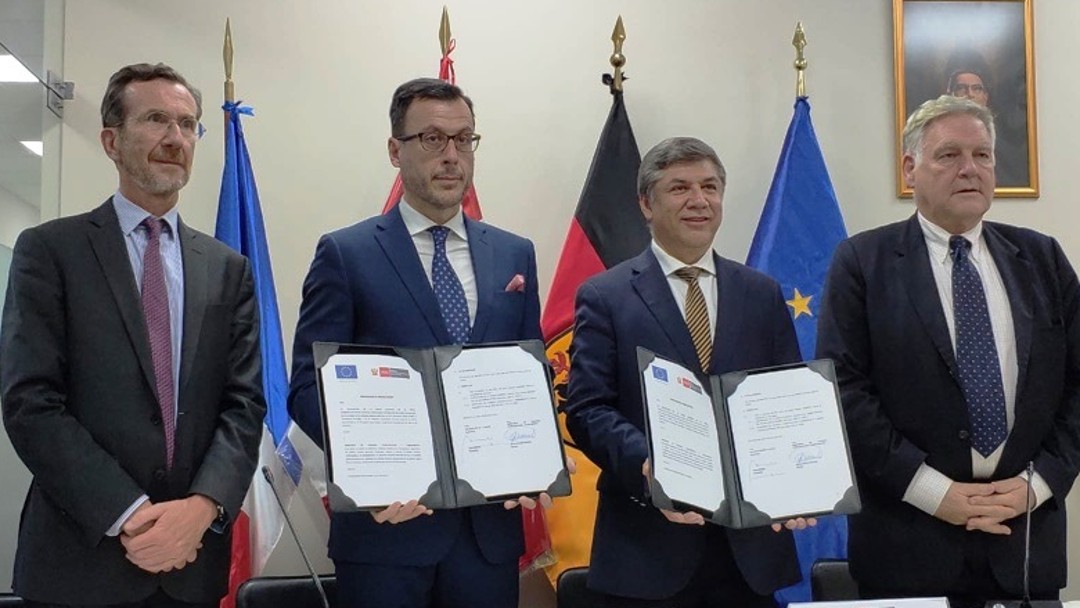News from 2019-07-02 / KfW Development Bank
Energy-efficient housing construction in Peru
First joint AFD and KfW financing project under the Mutual Reliance Initiative in Latin America – a project that could set an example for others to follow

KfW and AFD co-financing
Peru needs more housing, especially for medium and low-income households. According to the National Institute for Statistics, the country is lacking more than one million housing units. To combat this shortage, KfW is supporting a "green" social housing programme set up by Fondo MiVivienda (FMV) with a promotional loan of EUR 45 million on behalf of the Federal Ministry for Economic Cooperation and Development, the contract for which was signed on 25 June 2019 in Lima.
The French development agency Agence Française de Développement (AFD) is contributing EUR 105 million to the overall financing, while the EU will supply EUR 10 million in the form of grants. This represents the first co-financing project between KfW and AFD in Latin America to be based on the Mutual Reliance Initiative – MRI. This approach means that each institution adopts the information and negotiation elements of the other, thereby eliminating the duplication of effort that would ensue if each institution conducted its own procedures individually. The cooperation is instead based on mutual trust in the processes of the other party. For the partners, this reduces transaction costs and facilitates cooperation with European development banks acting within a unified approach.
Affordable housing
FMV is a public bank that is owned by the State of Peru and promotes the construction of housing for people with a low or medium income. FMV will only finance housing that costs between EUR 15,000 and EUR 108,000 and will only provide a loan to a person or family who can provide evidence that they do not already own a house or apartment. This ensures that the bank does not fuel speculation on the real estate market with its funding.
The FMV's green programme makes low-interest, long-term loans available for housing with low energy and water consumption values. This is intended to create 7,000 such housing units. In order to qualify for the programme, construction companies must provide evidence that the housing meets the defined efficiency criteria.
Combining environmental protection with social responsibility
The additional costs incurred by green technologies are compensated for by the lower interest rates. Poorer households can also apply for a green grant (Bono Mivivienda Verde) that enables them to purchase an energy-efficient social housing unit at the same price as a standard apartment, making sustainable living attractive, even for people with smaller budgets. The approach is based on similar KfW projects in Mexico and Chile, which are proving very successful and have already helped thousands of people with limited means into environmentally friendly housing.
"The programme combines environmental protection with social responsibility, which means it fits in perfectly with our goals," says Senior Project Manager Markus Rühling, explaining the basis for KfW Development Bank's involvement in the project. He goes on to cite the co-financing with AFD as another advantage. Only recently, the Executive Boards of the two institutions – represented by Rémy Rioux and Dr Joachim Nagel – signed an agreement to further strengthen the cooperation between AFD and KfW. The jointly developed measure with FMV represents a tangible result of this partnership.

Share page
To share the content of this page with your network, click on one of the icons below.
Note on data protection: When you share content, your personal data is transferred to the selected network.
Data protection
Alternatively, you can also copy the short link: https://www.kfw-entwicklungsbank.de/s/enzBWrMC.CBWA
Copy link Link copied